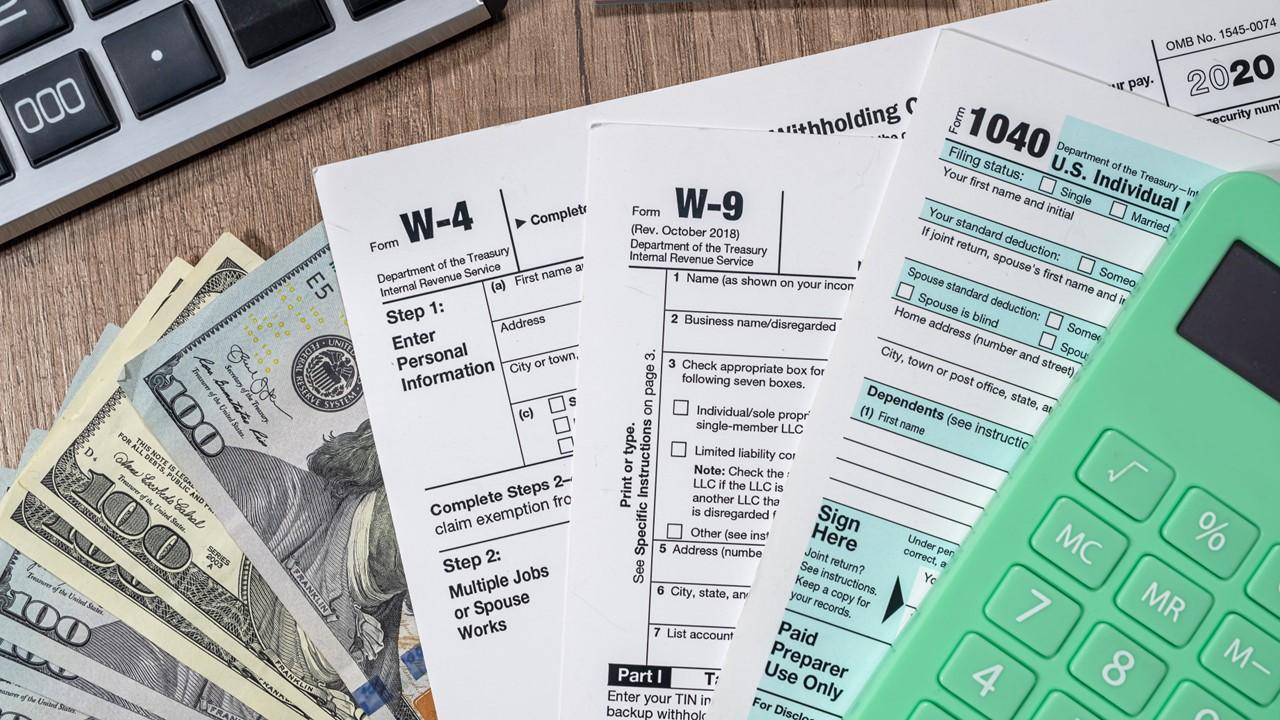12 Million Americans Get Another Tax Refund — Who Qualifies?
The IRS issued 12 million tax refund payments after corrections to 2020 federal tax returns. See if you qualify for an additional tax refund.
Jan. 12 2023, Published 2:51 p.m. ET

If you qualified for a tax break on unemployment benefits for the 2020 tax year, you may be among the 12 million Americans getting new refunds. The Internal Revenue Service announced in a press release last week that it had completed corrections to 2020 tax returns. Here's why you might get one of the IRS's 12 million tax refunds for 2020.
According to the IRS, many Americans overpaid on taxes for unemployment compensation received in 2020. This was in part because the American Rescue Plan Act wasn't signed into law until March 2021, after many Americans had already filed their federal returns.

Why did some people overpay on 2020 taxes?
There are many possible reasons for overpaying on taxes, but some Americans did so due to collection of unemployment benefits in 2020. As millions of citizens became unemployed during the COVID-19 pandemic, their tax situation changed.
As Fox Business explains, the federal government and many states count unemployment benefits as taxable income. However, these benefits don't automatically deduct taxes as a typical employer would from a paycheck. This can result in Americans who received jobless aid being hit with an unexpected tax bill if they weren't aware of the requirement to pay.
Fox Business reported that the Century Foundation estimates around 40 million Americans collected some jobless benefits in 2020, with an average total payment of $14,000.
Extra unemployment benefits were exempt from taxes.
Although unemployment benefits are usually taxable, the American Rescue Plan Act provided an exclusion of up to $10,200 in unemployment income for individual filers. For married couples filing jointly, the amount is doubled to up to $10,000 per person. To receive this exclusion, your modified adjusted gross income must have been under $150,000.

The IRS has reviewed Forms 1040 and 1040-SR that were filed before the passage of the American Rescue Plan Act. This was done to identify taxpayers that had already reported their unemployment compensation as income, making them eligible for a correction. The IRS said it took care of these tasks "to ease the burden on taxpayers."
Here's how to know if you're getting a refund.
Taxpayers that the IRS identified as qualifying for a refund due to the unemployment tax overpayment should have already received a refund. However, the IRS noted that some eligible for refunds had that money applied to taxes due or other debts. Some taxpayers affected will only see a reduction in their adjusted gross income.
Whichever category you belong to, the IRS says it has sent a letter to inform you of the changes, which you should then retain for your tax records.
How much did the IRS refund taxpayers?
According to the IRS, this recently completed round of corrections for 2020 resulted in corrections of about 14 million returns. About 12 million refunds have been issued totaling $14.8 billion. The average tax refund given was $1,232.
Not all of these new refunds resulted from unemployment compensation issues, but from other tax credits as well, including:
- Earned Income Tax Credit
- Recovery Rebate Credit
- Additional Child Tax Credit
- American Opportunity Tax Credit
- Premium Tax Credit
- Advance Premium Tax Credit
What if the IRS didn't correct my tax return?
The IRS noted that if you're eligible for the unemployment compensation exclusion, but the IRS hasn't corrected your return, you may need to file an amended 2020 tax return. If you've already filed an amended tax return claiming the exclusion, don't file another one.
Whenever an amended tax return is required, you have three years from the date you originally filed a tax return to complete an amended return, or two years from the date you paid any taxes due. The deadline to file an amendment to claim a refund is whichever of those dates is later.
